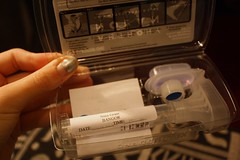DNA exonerations occur when a person who had previously been found guilty or even pled guilty to a crime is cleared of the offense because of DNA evidence. This could be someone else’s DNA found on the crime scene, implicating another suspect, or an absence of the original suspect’s DNA. When it comes to evidence, DNA is the most powerful. So, why do some prosecutors remain unmoved in the face of it?
This article from the NY Times illustrates a few different cases where DNA evidence cast significant doubt on the guilt of an already sentenced party, but the prosecutor didn’t see the doubt as being worthy of exoneration or even a second look.
One issue that prosecutors seem to have with DNA evidence pointing to potential innocence, is when there is a confession involved. But a confession doesn’t always mean guilt. Sure, a confession from a defendant is likely to garner a guilty finding in court, but it doesn’t always mean that defendant committed the crime they are accused of. Just ask the many people who have confessed to a crime only to later be exonerated by DNA evidence.
A look at 194 cases involving DNA exoneration showed 88% of prosecutors moved to vacate convictions, siding with the defense. But in 13% they opposed the motions and in 4% they opposed the motions even when another suspect was identified with the DNA evidence.
Many prosecutors say that DNA evidence isn’t always the “silver bullet” it’s made out to be. Instead, they counter, it is only one piece of evidence, possibly even as susceptible to doubt as all other evidence.
Some of these cases, where a prosecutor opposes action, end in exoneration despite their opposition. The case of the Central Park 5, for instance, where 5 teens were accused of brutally beating a woman in the park, ended in exoneration when another suspect’s DNA was found on the scene, a suspect who had committed other similar offenses.
The American justice system is adversarial. The prosecutor is always acting in the name of the state and the defense lawyer on behalf of their client. While the prosecutor is tasked with pursuing justice, they sometimes lose track of what this means and instead pursue “wins” regardless of the ethics. It could be that this mentality is also playing into their reluctance to give DNA evidence the weight it often deserves.
DNA evidence isn’t available in all cases. As a matter of fact, it’s pretty rare. But other evidence can also serve to seal your fate. Whether you are accused of a drug offense or even a vicious assault, a defense lawyer can help you analyze the evidence to determine the best course of action in your case. Let us put you in touch with a criminal defense lawyer today.

